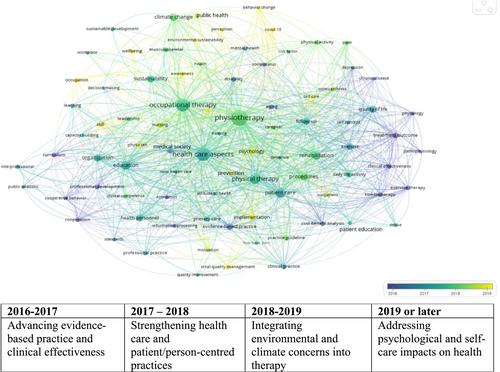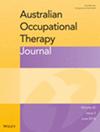Fostering the discussion of planetary health in occupational therapy and physiotherapy
Abstract
Introduction
Occupational therapists and physiotherapists aim to promote health, prevent various diseases and help people in their rehabilitation processes. So far, there is a paucity of understanding of the big picture of how the new paradigm of planetary health (PH) is connected to the education and practice of these professionals.
Methods
This research aimed to address this gap by investigating and deploying a bibliometric analysis to elucidate the pivotal role of occupational therapists and physiotherapists in addressing PH challenges. The ultimate goal is to construct a comprehensive framework crosschecking the bibliometric analysis and the collection of 10 case studies selected by experts to outline how best practices in occupational therapy and physiotherapy, related to the three pillars of sustainability and the UN's Sustainable Development Goals (SDGs), can contribute to increasing PH.
Results
The bibliometric analysis revealed four major research strands: 1) enhancing patient care and quality of life; 2) integrating sustainability in health care and rehabilitation; 3) professional development and clinical competence; and 4) evidence-based practice and quality improvement. Moreover, further temporal analysis revealed how the topic evolved, from advancing evidence-based practice and clinical effectiveness, exploring the strengthening of health care and person-centred practices, to connecting the topic to aspects also predicted by the SDGs, such as integrating environmental and climate concerns in therapy and addressing psychological and self-care impacts on health. The case studies confirmed this trend, and a framework of PH in occupational therapy and physiotherapy through the lens of the SDGs was developed to support future research and practitioners in advancing this research field.
Conclusions
Occupational therapists and physiotherapists are essential players in public health and can integrate sustainability at every level of practice, from using resources during therapy sessions to advocating for more sustainable lifestyles.


 求助内容:
求助内容: 应助结果提醒方式:
应助结果提醒方式:


